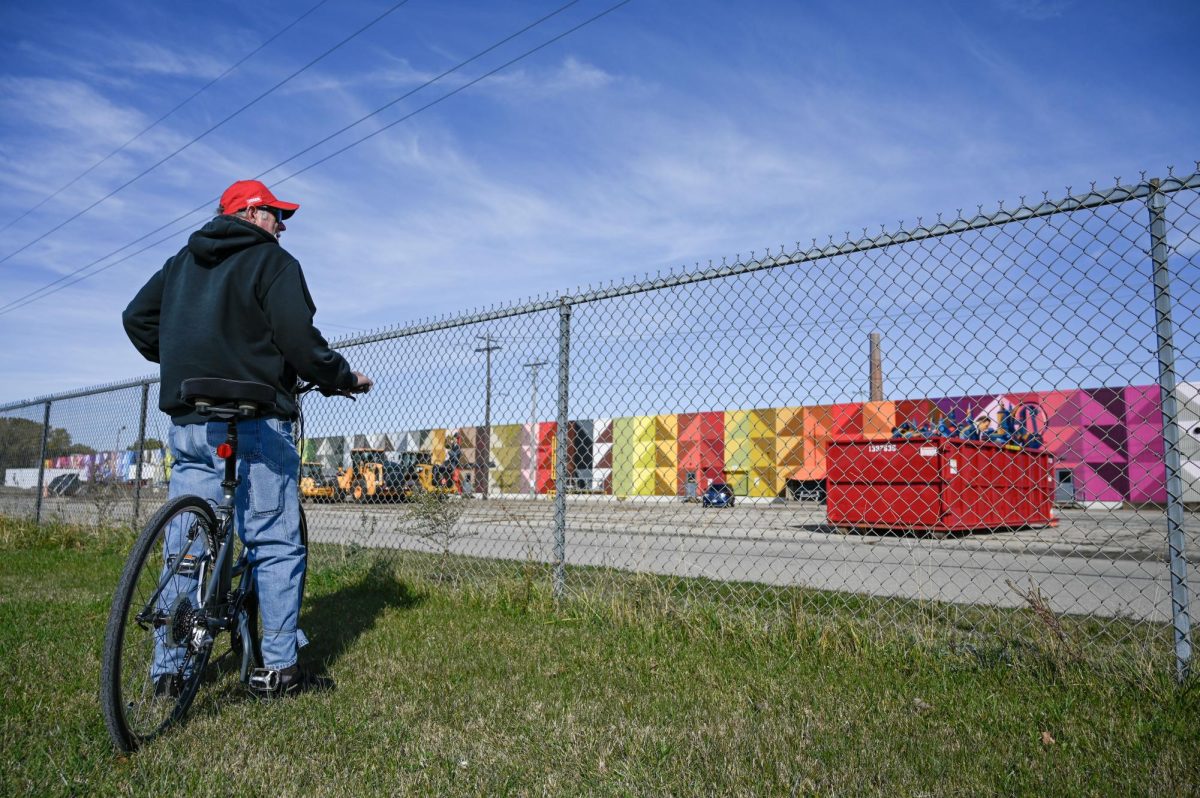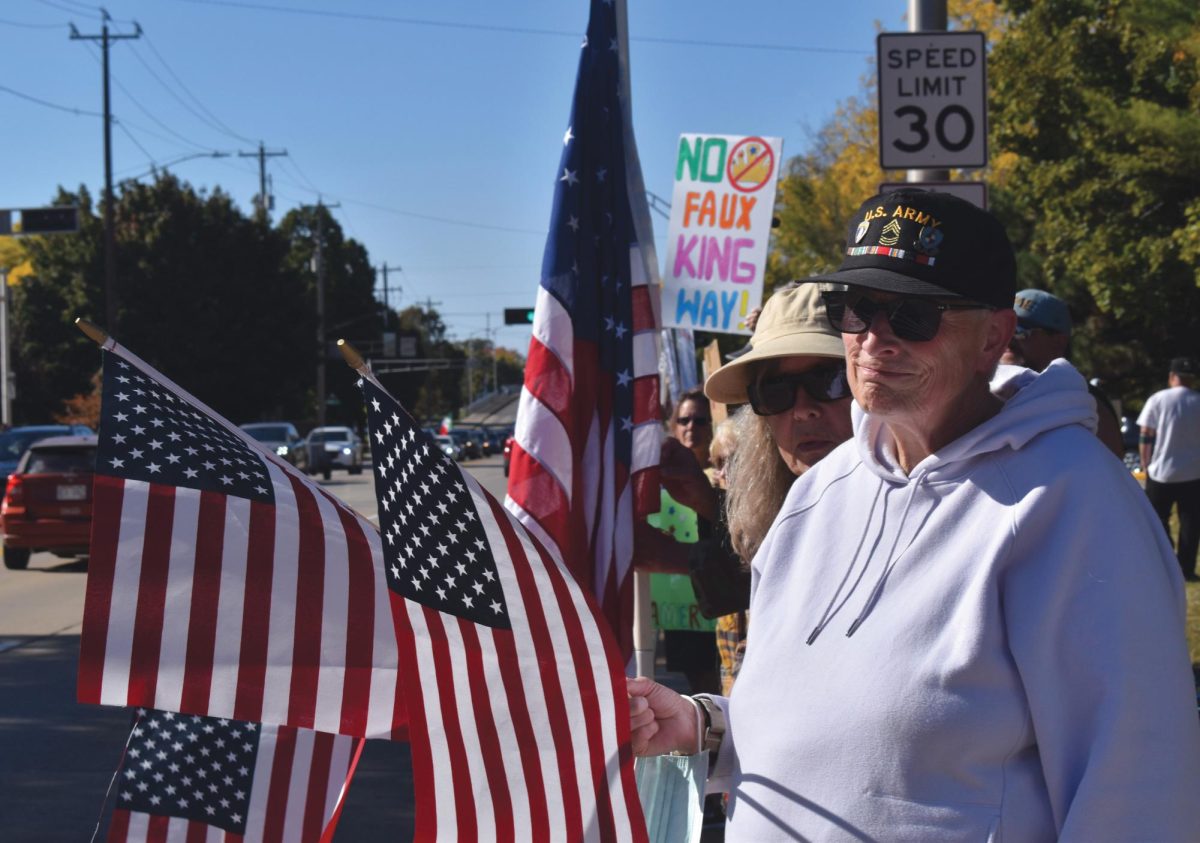The state of Wisconsin has been in the national spotlight over the past few weeks as we approached the increasingly important primary elections, which were held Tuesday. As results came in, Wisconsin voters made clear choices in both the Republican and Democratic races: Sen. Ted Cruz (R) and Sen. Bernie Sanders (D) both won decisive victories. Political science professor James Simmons, who specializes in political theory and American politics, is also a member of a political forecasting group, which predicts election outcomes. He describes how this primary process is handled differently in each state and how Wisconsins primary allows for high voter turnout. With 50 different states, there are 50 different ways in which this can be done, Simmons said. First, you still have same day registration in Wisconsin so the turnout for our primary will be substantially higher than other states [without same day registration]. Probably as many as 40% of the eligible voters will turn out to vote on Tuesday. Simmons continued by describing just how delegates are allocated to the winning candidate (Republican candidates can receive up to 42 delegates; Democratic candidates have 96 available delegates). There are 42 delegates who allocated, and they are not proportional [in the Republican race], Simmons said. If you win the state, you get 18 delegates, so that is the total number you get for carrying the state. And then, there are three delegates allocated by the eight congressional districts. So 24 delegates are allocated by those districts and eighteen are allocated at large. The Democratic Party allocates its 96 delegates proportionally among its candidates. Simmons believes this race is important for both sides; the Republican establishment with the Stop Trump Movement, and the continuation of the momentum of the Sanders campaign on the Democratic side. This is a key primary for both political parties, Simmons said. Because basically Wisconsin is huge for the Stop Trump Movement. If Cruz can win Wisconsin and win a majority of the delegates, it would be a large win for that movement and a disappointment for the Trump campaign. And on the other side, Senator Sanders only shot is if he keeps winning primaries by big margins. The momentum to be gained from the Wisconsin primary is huge because one of the next states is New York. If Hillary Clinton cannot win her home state because of this wave of momentum Sanders has, there is something to be said for that. Jakub Nowak, a political science student and member of College Republicans, also said he believes that the Wisconsin primary is important because this state is often described as a swing state in many elections. The national polls will have Donald Trump and Hillary Clinton in the front, but when you get to Wisconsin, everything changes, Nowak said. I feel that the primary is also important for us as Wisconsin citizens because the candidates actually focus on us and they try to gain our support and address the problems we face here. In addition to this focus on the presidential primary, Simmons points out that there are other races running in this election as well, including an election for the Wisconsin Supreme Court. This election is not just the presidential preference, but probably more important for people living in the state is the court races, Simmons said. This whole process going to be really big and the presidential preference is gaining most of the national attention, but the State Supreme Court race will be a huge decision for students as well. Nowak agrees with Simmons, saying that the Wisconsin Supreme Court election is extremely important and is hopeful that the high voter turnout for the presidential primary will help to bring some attention to this election as well. I am glad that this election is happening during the presidential primaries, because if Wisconsin follows suit like every other state, we are going to have record turnouts, so that is really good for people to have to vote and pay attention to this kind of race, Nowak said. On late Tuesday night and early Wednesday morning, the results came in as overwhelming victories on both the Republican and Democratic tickets. Sen. Ted Cruz of Texas opened up an early lead Tuesday night. In all, Sen. Cruz received 48.2 percent of the Wisconsin Republican vote, which tallies to over 530,000 individual votes. His closest competitor, the Republican front-runner Donald Trump, received less than 390,000 votes. Because of the way in which the Republicans allocate their delegates, described above by Simmons, Sen. Cruz received 36 delegates, while Donald Trump received six. Focusing specifically on the local area surrounding campus, Cruz continued his large victory across much of Winnebago County. In total, Cruz received over 3,000 more votes than Donald Trump in a county which only had a total of just over 30,000 voters. On the Democratic side, Sen. Bernie Sanders defeated Democratic front-runner Hillary Clinton in every county in Wisconsin besides Milwaukee County, where Clinton held on to a three point victory. In total, Sen. Sanders received more than 560,000 votes (56.6%) compared to Clintons 432,000 (43.1%). This victory by Sanders allowed him to claim 47 delegates, with Clinton receiving 36. In Winnebago County, Sanders numbers were even higher. He defeated Clinton by nearly 25% and claimed just over 6,000 more votes than the former Secretary of State. Monika Greco, a junior who is double majoring in political science and philosophy, talked about how she avoided the rush of people by voting early and how the primary process is an important step in electing the next leader of our country. I thought the whole process on campus went well, Greco said. Overall, what I was surprised to hear about was how many students did not vote. There was a lot of complaints about the lines, the lack of time, and talk about how they [other students] would vote in the later elections [in November]. However, I feel like the primaries are more important because there are more partisan people out to vote and more extreme candidates as compared to actual presidential race. Melissa Belmontes, a communications major who voted on campus, experienced a long line when voting at Albee, but felt that those working on registering people were moving quickly. The issues revolved around the large amounts of people. Once you reached the front of the lines, where people were actually registering and voting, I thought the process went pretty quickly, Belmontes said. Marcus Larson, a junior who voted off- campus in Winnebago County, also experienced the long lines during the primary elections and believed part of it was due to all the new voter registrations taking place on Election Day. I voted across the Fox River at the senior center and it was quite the experience, Larson said. There were a lot of people who turned out to vote, lines were long, but that is a good problem to have because it means people were actually out voting. The same day voter registration definitely had an impact on how quickly it took to vote though, because as these same day registration voters were finished registering, they had to get back in line which just doubled the amount of time it took to vote. Jordan Schettle, a senior who is also a political science major and President of the student government on campus, also weighed in on the high voter turnout. So often people talk about voter apathy, but this was the largest presidential primary turnout since 1972, Schettle said. I think that says a lot about the candidates, as well as the current position that many people have within our political system. People want to see some change and they truly want to feel like they have a voice. And that is just wonderful.
Categories:
Cruz and Sanders take WI
April 6, 2016
0
More to Discover








